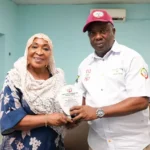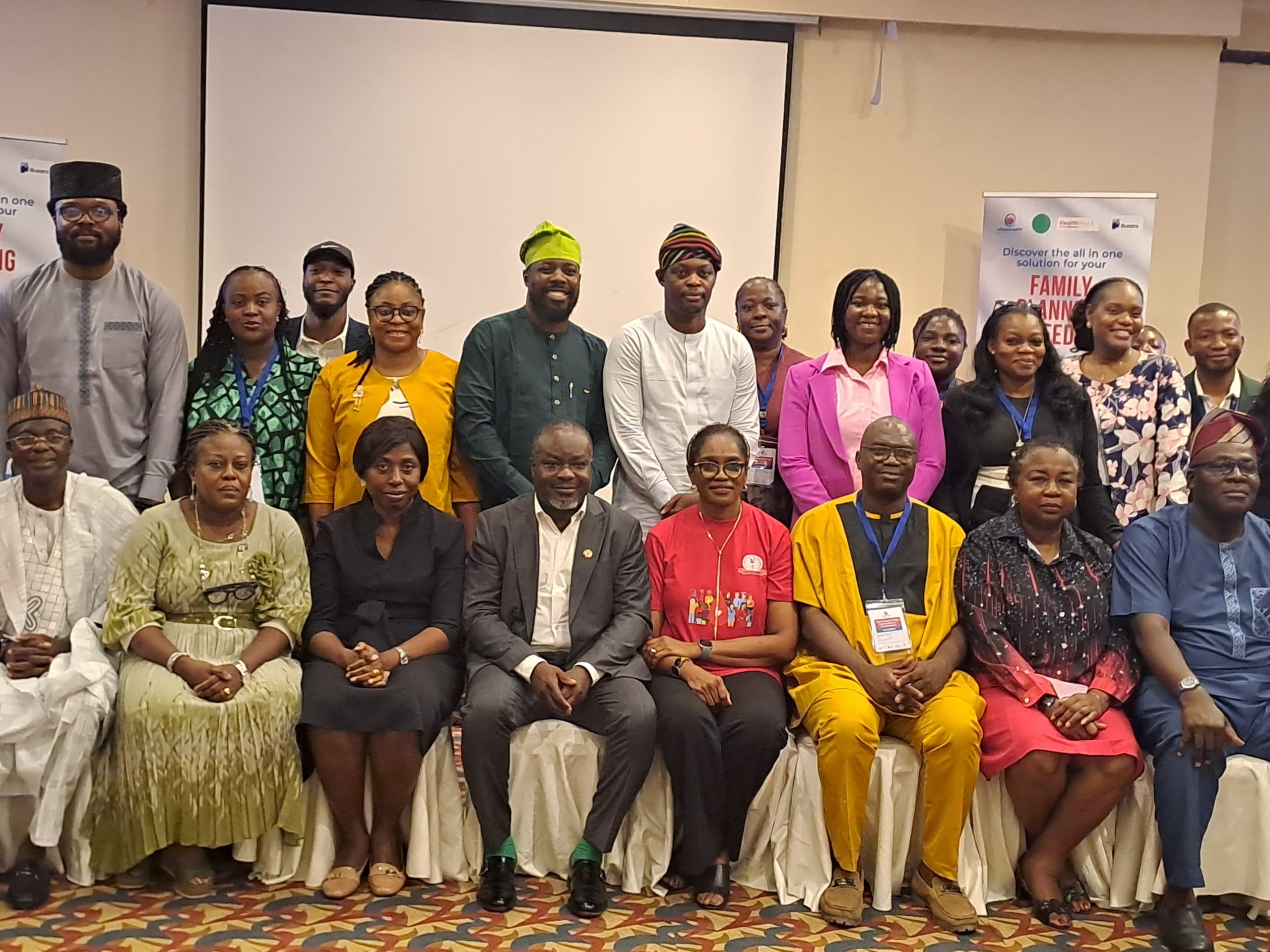By Oluwafunke Ishola
The Lagos State Government and the Society for Family Health are expanding family planning access for residents through online pharmacies to achieve a more inclusive, efficient and equitable health system.
Dr Kemi Ogunyemi, Special Adviser to the State Governor on Health, said this at the E-Pharmacy for Family Planning Project First Phase Dissemination on Tuesday in Lagos.
The News Agency of Nigeria (NAN) reports that the event was themed, “The Digital Shift: Shaping the Future of Healthcare Access and Delivery Through e-Pharmacies”.
An e-pharmacy, also known as an online pharmacy, is a pharmacy that operates over the internet, allowing customers to purchase medications and other health-related products online.
The e-Pharmacy for Family Planning Project (ePharma4FP) seeks to improve access to high-quality family planning (FP) products, information/counselling, and services for women in Lagos.
E-Pharmacies have emerged as a critical solution to bridge gaps in access and delivery as health systems face surging demands to provide safe, efficient, accessible, and affordable medicines and health services for all.
Ogunyemi emphasised that the ePharma4FP project was critical as the state strives to build a more inclusive, efficient and equitable health system, particularly in reproductive health and family planning.
She noted that access to contraceptives and essential health commodities is more than a health service but a fundamental right that empowers women, supports families and strengthens communities.
“We are living in an era where technology and data are reshaping every aspect of our lives and healthcare is no exception at all.
“By enabling digital access to these services, e-pharmacies are breaking down barriers – geographical, social and economic, that have too often stood in the way of progress.
“The e-pharmacy project for family planning is a commendable demonstration of what can be achieved through innovation, collaboration and data-driven decision-making led by the Society for Family Health,” she said.
According to her, the initiative is generating physical evidence on how e-pharmacy models can be scaled and sustained across Nigeria to ensure a steady supply of medications.
Ogunyemi restated the state’s commitment to digital health transformation and improving reproductive health outcomes.
She disclosed that the findings from the project would play a vital role in informing policies, strengthening regulation and guiding future investments in digital health systems.
Ogunyemi commended the Gates Foundation for funding the project, emphasising that the foundation’s dedication and innovation were a footstool for a more accessible, responsive and resilient health system.
Similarly, Dr Segun Ogboye, Permanent Secretary, Lagos State Ministry of Health, noted that the project reflected innovation and equity that brings private health services closer to communities within the state.
Ogboye noted that the policy and regulation environment for digital health services should be strengthened to discourage quackery in the system.
Mr Samuel Onoja, representative of the Pharmaceutical Council of Nigeria (PCN), described the initiative as a strategic step toward inclusive healthcare delivery in Lagos.
Also, Dr Akin Akinbajo, a public health physician with the United Nations Population Fund (UNFPA), said the private sector was critical to the adoption of modern contraception.
Akinbajo noted that UNFPA was working with the Federal Government and states to deepen access to family planning services.
Similarly, Mr Kunle Daramola, State Consultant, Gates Foundation, lauded Lagos State’s strides in family planning, submitting that the project would assist to reduce maternal mortality and improve the state’s health indices.
Dr Jennifer Anyanti, Deputy Managing Director, Strategy and Growth, SFH, noted that Lagos State’s support for the e-Pharmacy initiative was a testament to its commitment to improving access to quality healthcare services for all residents.
Highlighting the impact of trained pharmacists on residents’ health, Anyanti noted that they are the first point of call for health services for 70 per cent of the over 20 million residents and are available on almost every street.
“This E-Pharmacy platform aligns with our goals of increasing access to essential medicines and health services. We believe that this innovative approach will help bridge the gap in healthcare delivery, especially in hard-to-reach areas,” she said.
Similarly, Dr Uchenna Okafor, Chief of Party, E-Pharma for Family Planning Project, SFH, said the project is at the forefront of integrating e-Pharmacy solutions into health systems and contributing to the achievement of Universal Health Coverage.
She added that the project leveraged the HealthPlus e-pharmacy platform, to deliver FP products, information, and counselling and conducted implementation research in Lagos to understand the viability of e-pharmacies to provide family planning services.
Disclosing the project findings, Okafor said that digital health has undergone rapid growth globally due to increasing smartphone penetration and internet connectivity.
She further said that Nigeria and Lagos have shown significant growth in digital health adoption.
Okafor, however, said in spite of the rise of digital health, challenges like prescription abuse, counterfeit drugs, data privacy, and limited trust remain.
She disclosed that over 46 million women of reproductive age (WRA) live in Nigeria, where the total fertility rate is 5.3 live births per woman, dropping to 3.4 in Lagos.
Okafor submitted that low contraceptive uptake remains a contributor to the high fertility rates in Nigeria, adding that e-pharmacy would assist in expanding access to FP services.
She noted that the situational analysis and landscape study conducted by the project identified key policy gaps for the e-pharmacy ecosystem in Nigeria.
To bridge the gaps and create a supportive environment for e-pharmacy in the country, Okafor recommended immediate action to address PCN’s regulatory gap and an enhanced collaboration between stakeholders for a cohesive e-pharmacy ecosystem.
Others include improved investment in sensitisation and awareness programmes about e-pharmacy services, establishing a sustainable feedback mechanism for e-pharmacies to facilitate continuous improvements and ensure patient satisfaction.
She also recommended developing a National Electronic Pharmacy Platform and investing in in-school and in-service training about e-pharmacy services provision to increase knowledge and skills.
Okafor submitted that the project was working with PCN and other stakeholders to bridge identified gaps for success.
NAN reports that the project funded by the Gates Foundation focuses on generating evidence on the feasibility, acceptability, and business case of optimising epharmacy models to deliver family planning information, products, and services in Lagos state.
The Epharma4FP project is implemented by a consortium of four partners led by the Society for Family Health, Busara Centre for Behavioural Research, HealthPlus Pharmacy and Pharmaceutical Society of Nigeria Foundation (PSNF). (NAN) (www.nannews.ng)
Edited by Vivian Ihechu












